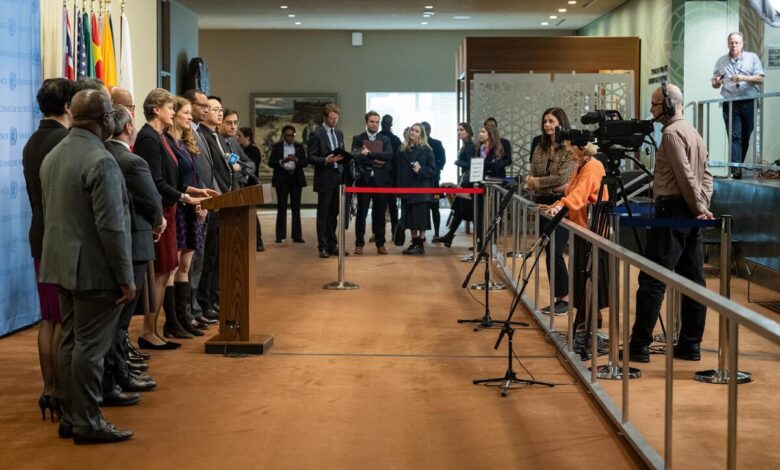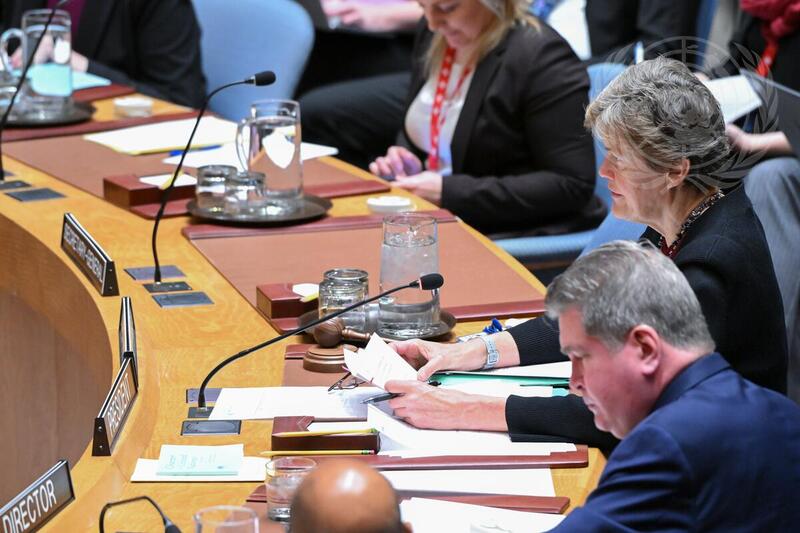11 Countries’ Joint Statement: Climate Change Exacerbates Yemen’s Dire Situation

Yemen Monitor/New York/Exclusive:
A joint statement by countries participating in the UN Security Council’s pledges on climate, peace, and security has asserted that Yemen’s dire situation is being aggravated by climate change-related risks.
The statement was issued on behalf of France, Guyana, Japan, Malta, Mozambique, the Republic of Korea, Sierra Leone, Slovenia, Switzerland, the US, and the UK.
As reported by Yemen Monitor, the statement said, “The protracted conflict in Yemen has displaced more than 4.5 million people internally, in addition to causing severe damage to infrastructure and economic collapse.”
18.8 million Yemenis – more than half the population – suffer from food insecurity and are in need of humanitarian assistance to survive. 75% of them are women and children.
Barbara Woodward, the UK’s Permanent Representative in her statement to the UN Security Council said: This dire humanitarian situation is exacerbated by climate change-related risks, such as rising temperatures, drought, and desertification, as well as irregular rainfall patterns and flash floods.

She noted that “access to safe drinking water is one of the most critical challenges facing Yemen. According to the World Bank, an estimated 18 million people lack access to safe water and adequate sanitation services in Yemen.”
Yemen is already one of the most water-scarce countries in the world. However, the country’s water supplies are threatened by a range of climate change impacts, including rising sea levels, which can cause saltwater intrusion into freshwater sources in coastal areas.
Furthermore, intensified heavy rains and floods have increased the risks posed by landmines and other unexploded ordnance, and heightened the risk of cholera transmission through contaminated water supplies. The depletion of groundwater reserves and the increased frequency and severity of extreme weather events have led to the degradation of agricultural land. This, in turn, exacerbates food insecurity, a driver of displacement and local conflict, as competition for scarce resources increases.
The countries stated that they recognize “the multifaceted linkages between climate change, conflict, displacement, and increased poverty and vulnerability, all of which contribute to the deteriorating security and humanitarian situation in Yemen.”
They added: The prevention, management, and resolution of local disputes related to land, water, and natural resources are essential. A comprehensive political settlement under the auspices of the UN Special Envoy for Yemen is the only way to achieve sustainable peace and long-term stability in Yemen, and to address these challenges.”
They emphasized that the international community should strive “to address the impacts of climate change and biodiversity loss, and promote the sustainable management of natural resources in Yemen as part of broader humanitarian and peacebuilding efforts.”
Continuing, they stated: “In addition, global efforts to build local resilience to climate risks and strengthen disaster risk management and response, including through the implementation of early warning systems and improved monitoring of groundwater resources, should be enhanced.”
They called on “the broader UN system to support efforts to create more sustainable food systems, use water and energy efficiently, and increase the use of renewable energy. We will work to address the interconnected challenges of conflict and climate change to ensure that life-saving, immediate, and unimpeded humanitarian assistance continues alongside the pursuit of a stable and sustainable future for Yemen.”




